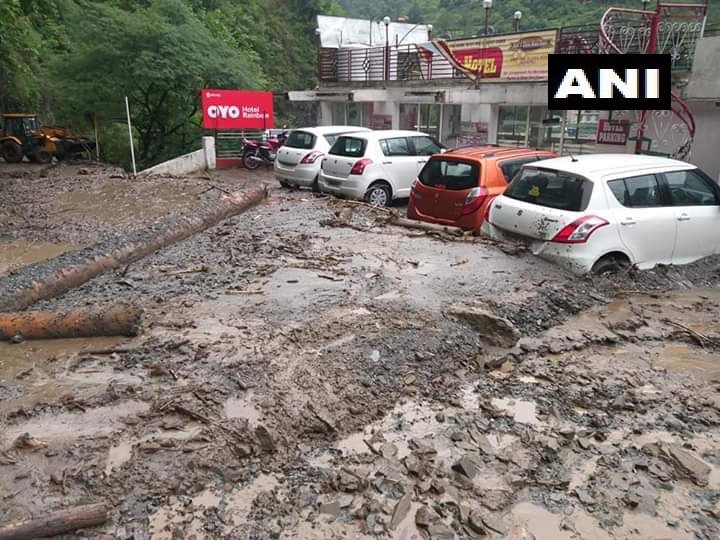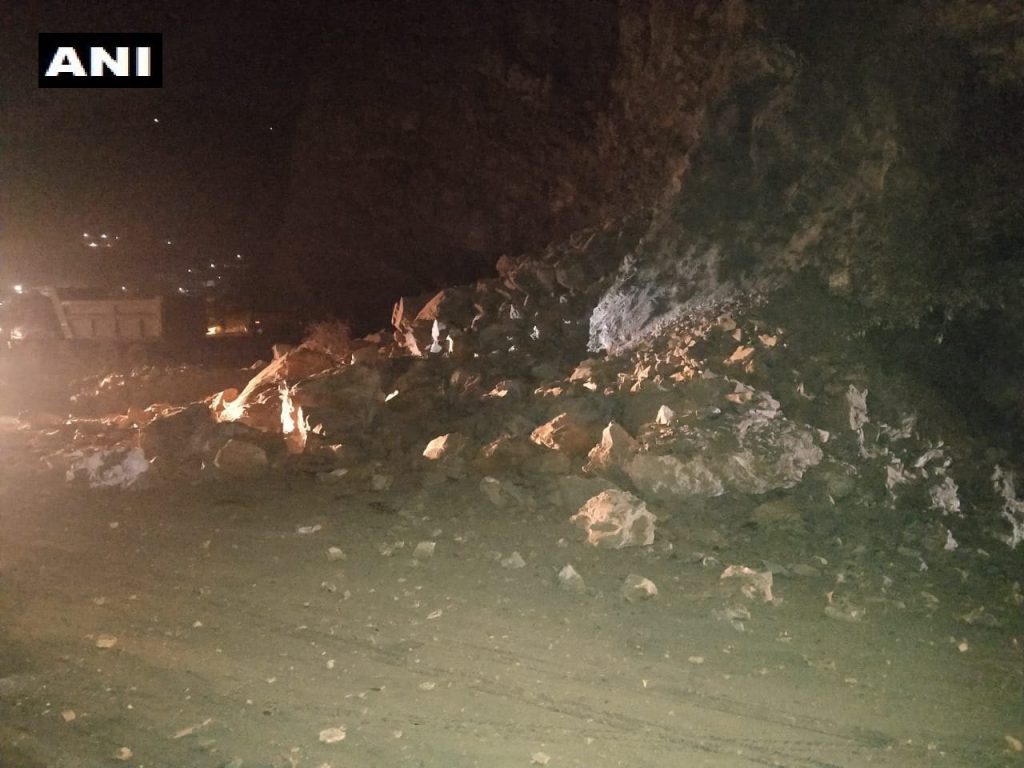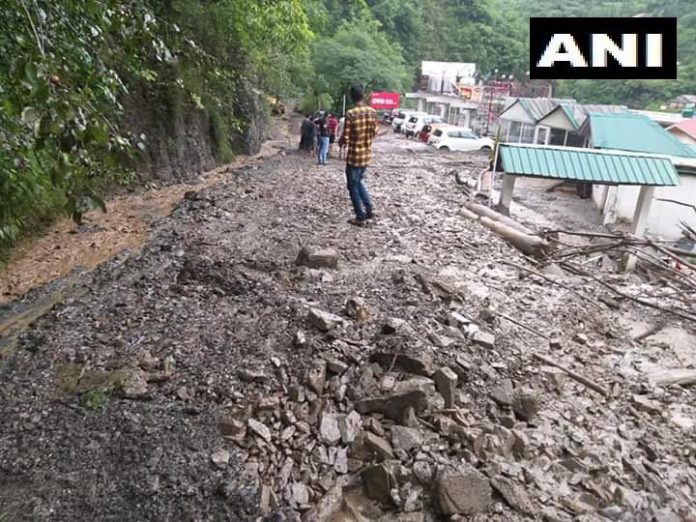How much people in plains enjoy the rains and wish to hit the roads to the hills, the more it is becoming dreadful up there. With heavy rainfall over past few days, massive mudslides and landslides have occurred on the Chandigarh-Shimla national highway, especially between Parwanoo and Solan. It has caused snarling traffic and posed a serious threat to motorists.
The 30-km stretch between Parwanoo and Kumarhatti is badly hit. Marred by landslides (maximum reported in this area), over 20 km stretch was either damaged or piled with boulders and muck.

In Kandaghat, road was blocked. A running car on the road was also swept away in the water, no injuries reported as the people in the car jumped out in time.

The ongoing highway widening project of National Highways Authority of India (NHAI), which aims to cut the travel time between Chandigarh and Shimla by shortening the distance by 17 kms, especially threatens life with falling debris and rocks.
Motorists say that the entire stretch from Parwanoo to Solan towns has become a permanent landslide zone particularly Chakki ka Mor.
What the geologists say
Geologists blame unscientific cutting of precipitous hills, largely of shell, sandstone and clay, for the frequent landslips.
As told to IANS, former state geologist and member of the Environment Ministry’s State Expert Appraisal Committee to assess projects, Arun Sharma, “Most of these mountain slopes are of sedimentary formation and have become destabilised with the reckless cutting by heavy earth-moving machinery. The loose and naked boulders with muck will continue to roll down on the highway for eight to 10 years more.”
He also added, “On the Parwanoo to Solan stretch, most of the hill cutting was done largely vertically than horizontally. At some points, large-scale vertical cutting was carried out.”
Status of ongoing highway widening project
Union Transport Minister Nitin Gadkari informed the Rajya Sabha on July 8 that the work on four-laning of the stretch between Parwanoo and Solan would be completed within the next six to eight months as the bottlenecks have been removed.
The project was being undertaken at a cost of Rs 750 crore and almost 75 per cent of the work has been completed.
News Source: NDTV
Image Credits: ANI





















